…
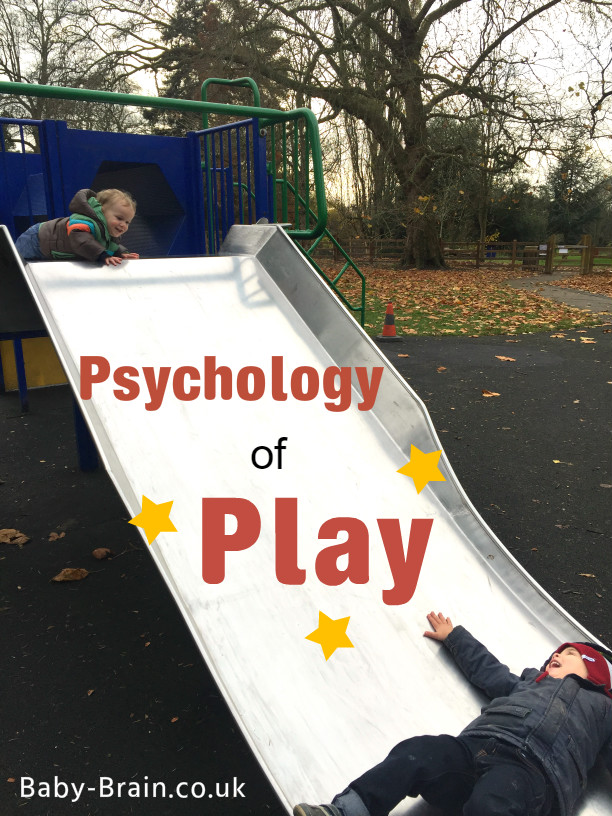
Come and play!
Play
Play is fundamental to learning. It contributes to cognitive, social, physical and emotional well-being and therefore is essential to development (1). Through play the child explores their environment and tests out their skills and abilities. The child also learns that they have some effect and control over their environment through their actions, build communication skills and relationships with their caregiver and gain social feedback.
In sum, some of the many benefits of play are:
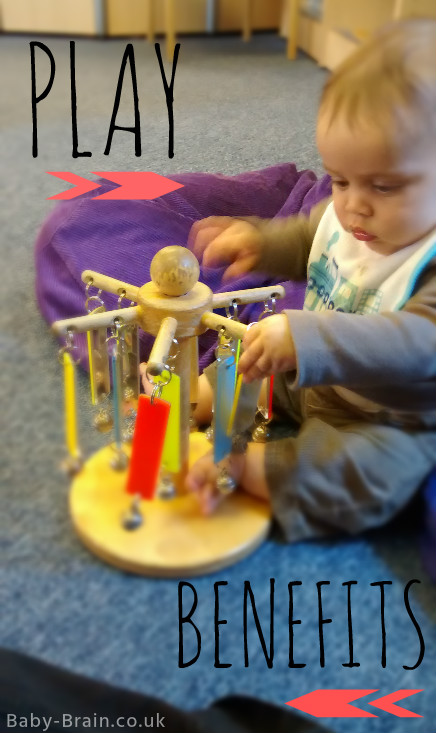
Physical skill development (fine and gross motor skills) e.g. through sorting blocks, putting objects in and out of a container
-
Develops language skills – Research (2) suggests that play incorporates many of the socially interactive and cognitive elements known to enhance language, especially “guided play” (parents follow child’s lead while scaffolding the interaction, rather than “free play” where play goes wherever child wants)
-
Develops communication and social skills – e.g.sharing, taking turns (with older children), social communication with other children and adults, negotiation skills
-
Understanding of cause and effect relationships – e.g. testing out a toy to try and understand how it works (3)
-
Relationships and bonding
-
Awareness of self in environment – control and ability to make decisions and direct the play
-
Self expression – of choices, wants, needs – experience of these being recognised by another person and learning their influence on the outcome
-
Creativity and imagination skills (1)
-
Independence – e.g. when playing on own and entertaining self
-
Benefits for parents: Observing or joining in child-driven play gives opportunity to see the world from their child’s perspective, especially with younger children who cannot talk yet – they might be able to express their views and frustrations through play . Learning to communicate more effectively and gives another setting in which to offer nurture and guidance (1)
How to support your child during play – what parents can do:
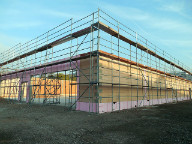
“Scaffolding” learning
Playing alone can be important – it might help the child develop confidence and independence skills, and at other times you (the parent or caregiver) might join in. I remember my toddler when he was a bit younger went through a stage when he didn’t want me to interfere too much in what he was doing and communicated this to me by making annoyed sounds and taking the object(s) we were playing with away from me. For example, if we were trying to sort shapes and I tried to “help” him he’d say waarrah and get annoyed. So I stopped. But, he still wanted me to sit with him. This made me think of the concept of:
-
Zone of Proximal Development (Vygotsky)
-
This is about what we can do with the help of others, that we could not do alone.
-
The support and interaction with others helps develop skills, learning and understanding in the area the child is trying to develop.
-
Here’s a brief page explaining zone of proximal development and scaffolding
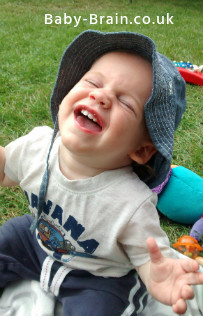
This is a learning model that actually applies to learning over the lifespan and is relevant us as infants, children, teenagers and as adults, across contexts from school to work. For example, a teacher or supervisor at work might refer to this concept when assisting the learning of a student or less experienced employee.
-
The teacher or supervisor can provide “scaffolding” to support the child’s developing knowledge, skills or understanding of the area they are trying to master.
In general, a consistent and predictable parental approach is beneficial
-
Encourage curiosity when playing together e.g. asking – where did that ball go?
-
If baby is exploring and experimenting comment on what they are doing. If they’re not quite getting something “right” e.g. stacking the wrong size block and it keeps falling off – try a comment to acknowledge their hard work and motivation such as “I can see you’re trying to stack those, it doesn’t look like that one fits does it?” – and maybe try scaffolding their attempts by suggesting another block or holding the blocks so they don’t fall to maintain baby’s interest and perseverance.
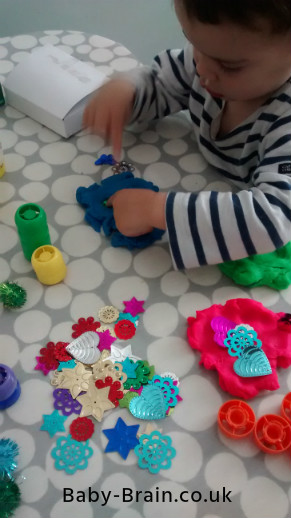 Get creative
Get creative
You don’t need fancy expensive toys for play or to aid development. This study here (4) discusses the possible benefit of every day items and furniture that can support gross and fine motor skill development (being mindful of risky items or dangerous situations)
Toys, appliances, and even a sofa and coffee table can impact the way or when a baby first crawls, walks or achieves other growth milestones… the significant role household items play in their infant’s motor skill development.
‘What does a toy or a coffee table do?’ Well, depending on the space between the couch and the coffee table, it could be the first distance that the child wants to cross… If a toy is cranked and pops up, the child might want to go grab it, which could lead the child to walking. But the challenge is the thing that stimulates that child to begin walking.
Get Social
And of course, another free and thrifty play option is the local playground or park, where you can hang with your other parent friends and benefit from some conversation normalising the trials and tribulations of parenthood… 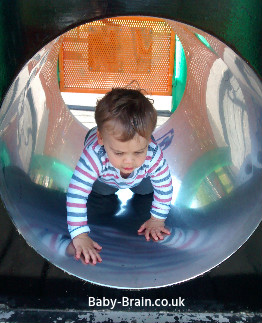
References:
-
Ginsburg, K. R. (2007).The Importance of Play in Promoting Healthy Child Development and Maintaining Strong Parent-Child Bonds. PEDIATRICS Vol. 119 No. 1, pp. 182 -191. http://pediatrics.aappublications.org/content/119/1/182.full
-
Weisberg, D. S., Zosh, J. M., Hirsh-Pasek, K., Golinkoff, R. M. (2013). Talking It Up: Play, Language Development, and the Role of Adult Support. American Journal of Play, 6 (1), pp. 39-54. http://files.eric.ed.gov/fulltext/EJ1016058.pdf
-
Schulz, Laura E., and Bonawitz, Elizabeth. (2007). Serious fun: Preschoolers engage in more exploratory play when evidence is confounded. Developmental Psychology, 43, 1045-1050.
-
P. M. Cacola, C. Gabbard, M. I. L. Montebelo, D. C. C. Santos. Further Development and Validation of the Affordances in the Home Environment for Motor Development-Infant Scale (AHEMD-IS).Physical Therapy, 2014; 95 (6): 901 DOI: 10.2522/%u200Bptj.20140011
